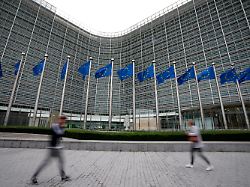EU negotiators reach an agreement
Artificial intelligence should be more strictly regulated
December 8th, 2023, 11:50 p.m
The EU wants to be a global pioneer with the law regulating artificial intelligence (AI). After tough negotiations it is now done. Accordingly, stricter rules should apply to applications with AI. But there should be room for innovation. The European Parliament and EU states still have to agree
In the future, stricter rules will apply to the use of artificial intelligence (AI) in the EU. After long negotiations, negotiators from the European Parliament and EU states agreed on corresponding rules in Brussels. According to the EU Parliament, this is the world’s first AI law.
Artificial intelligence usually refers to applications based on machine learning, in which software sifts through large amounts of data for matches and draws conclusions from them. They are already being used in many areas. For example, such programs can evaluate images from computer tomographs faster and with greater accuracy than humans. Self-driving cars also try to predict the behavior of other road users. And chatbots or automatic playlists from streaming services also work with AI.
The EU Commission proposed the law in April 2021. Accordingly, AI systems should be divided into different risk groups. The higher the potential dangers of an application, the higher the requirements should be. The hope is that the rules will be copied around the world.
Dispute over facial recognition rules
Recently, however, the negotiations almost failed – due to the question of regulating so-called basic models. These are very powerful AI models that have been trained on a broad set of data. They can be the basis for many other applications. These include GPT.
Germany, France and Italy had previously called for only specific applications of AI to be regulated, but not the basic technology itself. But the planned rules for facial recognition using AI, for example for national security purposes, also caused controversy. The European Parliament and the states still have to agree to the now agreed project, but this is considered a formality.
